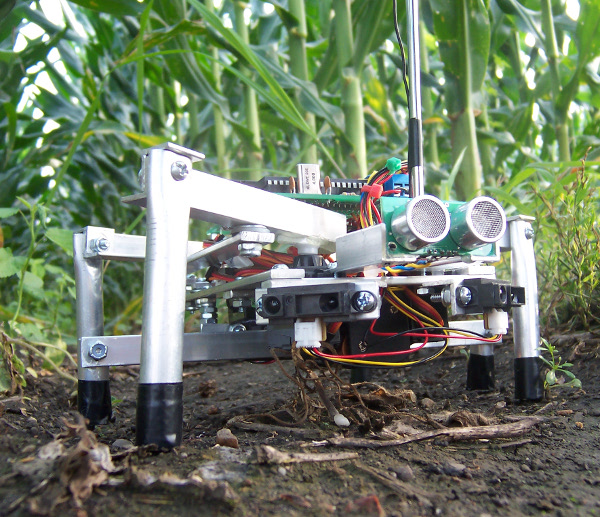
PHOTO/ROBOHUB.ORG AND VISION ROBOTICS CORPORATION
MERCED, CA — A wine-grape pruning robot that does the job of manual labor at half the cost. A strawberry-picking robot that works day and night. A lettuce-thinning machine in development that can do the job 20 to 40 times faster than a person. An orange-picking machine that is nearing implementation and already cheaper than a live picker.
All this may sound like science fiction. But these and numerous other innovations are already under development.
Agricultural interests and public universities are developing new technologies that will replace farm laborers. Included are drones that can herd cattle and spray chemicals. Already in use in green houses are robots that can sense the need for watering a particular plant, and others that can determine when a tomato is ready to be picked.
Guided by laser sensors and gyroscopes with mobile arms, this technology is fast invading the fresh-fruit and vegetable market that has long eluded mechanization. Experts estimate that robotization in the fields is from two to ten years away from full implementation.
Mechanization in the fields has historically lagged behind that in industry by at least 40 years for various factors, most notably the availability of a cheap, vulnerable, and abundant labor supply, which to a large extent is undocumented. The fact that agricultural interests clamor for a guest-worker program attests to their dependence on cheap labor. Growers claim that labor shortages are spurring on this new drive to replace workers in the fields. Although there is much truth in that statement, there is more to the story. Driven by foreign and domestic competition, capitalist interests in agriculture are forced to introduce robots in the fields in order to stay ahead of the competition.
What does this mean for the 11 million undocumented workers currently in the United States? Most certainly, it does not mean job security. Although the majority of the undocumented immigrants do not labor in agriculture, the gap between labor-replacing technology and the cost of labor in the cities and in rural areas is narrowing quickly. And it is having profound consequences for all workers, not just the immigrant worker.
Following WWII, technology such as the mechanical cotton harvester displaced millions of agricultural workers in the rural South, but these internal migrants were absorbed into new industrial jobs. What is happening today in the fields is much different from the early days of labor-enhancing technology. Early on, the introduction of mechanical grape harvesters was used to break unionization drives in California fields to keep wages low. Now actual jobs are being eliminated forever.
The new technology promises to provide an abundance of food, as well as eliminate back-breaking labor. But the way production is currently organized; the benefit goes to the capitalist and not to working people.
We are not disposable objects to be used and discarded when no longer exploitable. Our media, like this newspaper, are offered as tribunes of the people to discuss how society as a whole should benefit from public ownership of this new technology. It should not just benefit a handful of owners of that technology.

